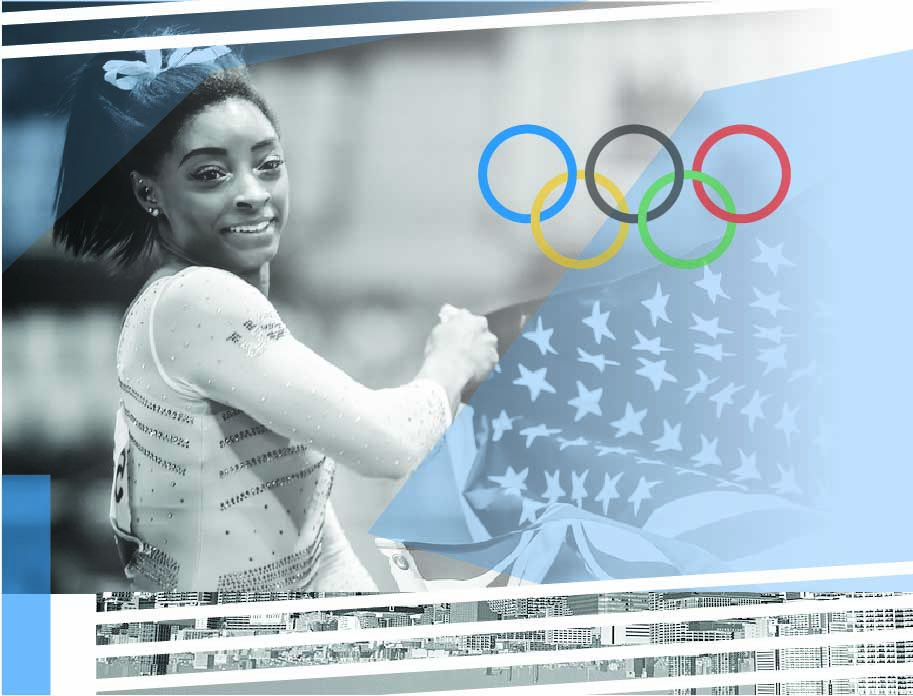
Dr Gashaw Abeza
Assistant Professor at Towson University. His research interest is in marketing communications, with specific areas of expertise in social media. He is the co-author of three and co-editor of one book: Social Media in Sport: Theory and Practice (2021, World Scientific), Sport Sponsorship Insights (2021, Routledge), Implications and Impacts of eSports on Business and Society (2019, IGI global), and Canadian Sport Marketing (Human Kinetics, in press). Dr. Abeza serves on the editorial boards of eight different academic journals.

Section 1: Tokyo & Mega-Events
- Public relations as the key in the 2020 Tokyo Olympic and Paralympic Games
- Tokyo 2020, East Asian geopolitics and Olympic diplomacy
- Anti-sex beds? Fake news! : why this video went massively viral?
- Power sharing: Olympic sponsorship and the athlete’s personal brand
- The Tokyo 2020 Organizing Committee’s veil of effective public relations to help save itself and the start of the Games
- Host city and mega-events: Olympic legacy in Japan
- The rise of critical consciousness in Japan: An intangible and unintended legacy of the Tokyo 2020 Olympic Games
- The soft power of the Olympics in the age of Covid 19
- Tokyo 2020 Olympic Games, nationalism, identity and soft power
- The typhoon games
- Environmental leadership showcased in the Olympic Games
- Simone Biles and prioritizing athlete well-being
- How the female athletes of the Tokyo Olympics are reframing the way we think about motherhood
- Deliver a medal or apologize: A daunting task imposed on Japanese Olympians
- What happened to Rule 40 at Tokyo 2020?
- Cultural programming at Tokyo 2020: the impossible Olympic festival city?
- A green Olympic legacy for future generations?
- Lessons from Tokyo: the impact of the Paralympics in Japan
- Let’s play! Inspiring an inclusive mindset with a hands-on Paralympic experience for children and teenagers in Japan.
- The Olympic & Paralympic sponsorship without category exclusivity: Background of sponsorship exclusivity in Olympic and Paralympic Games (OPG)
- Counting cases, counting medals: Containing the Olympic contagion during the Tokyo Games
- Pride and burden of striving for perfection at the Olympics
In modern sport history, arguably beginning with the 1996 Olympic Games in Atlanta, ambush marketing practice has evolved and become sophisticated. The practice is an organization’s efforts to “capitalize on the awareness, attention, goodwill, and other benefits, generated by having an association with an event or property, without the organization having an official or direct connection to that event or property’’ (Chadwick & Burton, 2011, p. 714). In its latest Tokyo 2020 brand protection guideline, the IOC characterizes ambush marketing as any intentional or unintentional attempt to create an unauthorized commercial association with the Games that is available only to official sponsors. Whether ambush marketing is an intentional or unintentional attempt to create an unauthorized association, the practice is considered by organizing committees of the 2020 Games as a threat to both the delivery of the Games as well as the official sponsors. It states, ambush marketing activities “result not only in a transgression of Olympic and Paralympic-related intellectual properties, but also in the reduction of sponsorship income” (pp.5).
Several scholars, who have conducted their research on the topic of ambush marketing, reported that the practice has the potential of diminishing property owners’ power to command higher fees and, in the long-term, has a damaging effect on sponsorship investment. In response to such concerns, host country governments enacted special legislations prohibiting ambush marketing and protecting the goodwill associated with the Games since the 2000 Olympics in Sydney. Similar legislations have been witnessed in countries such as Greece, China, Canada, United Kingdom, Russia, Brazil, South Korea and Japan. While legislations (i.e., laws to punish parties found involved in ambushing practice) might have greatly helped reduce ambush marketing, they did not, however, fully eliminate the practice. Communication (increasing public awareness about event properties including trademarks) and surveillance (identifying intellectual property infringement of the property owner rights) have been implemented as additional approaches to control ambush marketing.
Today, the practice has become more sophisticated and subtle. For example, the features of social media make the ambushing protection efforts challenging such as speed of information flow, no border restrictions, no time barrier, public forum, global reach, ease of access to the platforms, etc. With these features, as Meenaghan et al. noted, social media has brought a largely uncontrolled, fragmented audience, and a diverse range of new ambushing opportunities. During and around the most recent Olympic Games, the practice of ambushing has been prevalent on social media platforms among the rivals of Olympic sponsors. In fact, the IOC began formulating social media guidelines and policies for competing athletes and other credentialed officials prior to the 2008 Beijing Games. Subsequent guidelines have been released for the 2014, 2016, 2018, and 2020 Games.
With these guidelines in place, Abeza et al. (2021), examined the practices and strategies of ambush marketing via social media during the 2014 Sochi, the 2016 Rio, and the 2018 PyeongChang Olympic Games. The authors gathered data from the official Twitter accounts of 15 direct industry competitors of The Olympic Partners (TOP) over the three Games (e.g., Coca Cola vs Pepsi, Samsung vs Sony, Visa vs Mastercard). Despite a series of social media guidelines released by IOC, the study reported that the practice of ambush marketing via social media was evident during each of these three Games. The direct industry competitors were found employing four specific ambush strategies, namely, associative (the use of imagery or terminology to create a suggestion that an organization has links to the event), values (the use of an event or property’s central value or theme to imply an association), coattail (attempting to directly associate itself with a property using a legitimate link, such as participating athletes), and property infringement (the intentional unauthorized use of protected intellectual property, such as a logo, a name, and words). It has been observed, ambushing practice on SM is moving away from direct attack and breaching rules to more indirect and sophisticated practice. For instance, the direct ambushing practices (i.e., coattail and property infringement) observed during the 2014 and 2016 Games were not observed during the 2018 Games. The focus has shifted more to indirect ambush marketing strategies (i.e., associative and values) which are challenging to track and flag (e.g., tracing the use of terms that refer to the Olympic properties).
In the case of Tokyo 2020 Games, the postponement of the 2020 Games greatly impacted the TOP. With the limited in-person engagement and restricted hospitality opportunity at the Games, there has also been uncertainty surrounding the execution of activation plans. Having been staged in the absence of spectators, the Games heavily relied on the traditional and digital media to reach consumers. Social media being an established medium today, it makes the Tokyo 2020 Games a unique case to investigate ambushing practice online. In fact, the presence of a certain degree of ambushing practice would be detrimental to the TOP. On one hand, the TOP have not been able to fully commit their resources for activation due to COVID-19, and on the other hand, it will be damaging if direct industry competitors of the TOP are ambushing the game to either promote themselves as being an official sponsor or attempt to create confusion and diminish the communication effectiveness of the sponsors.

